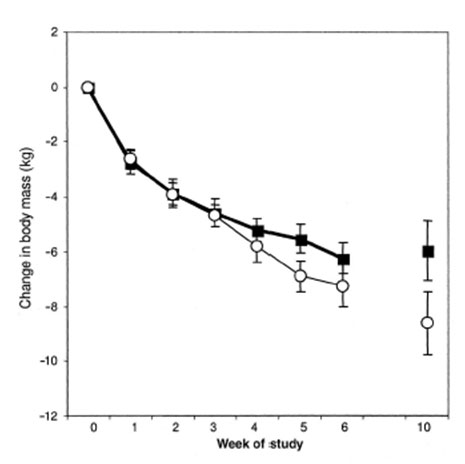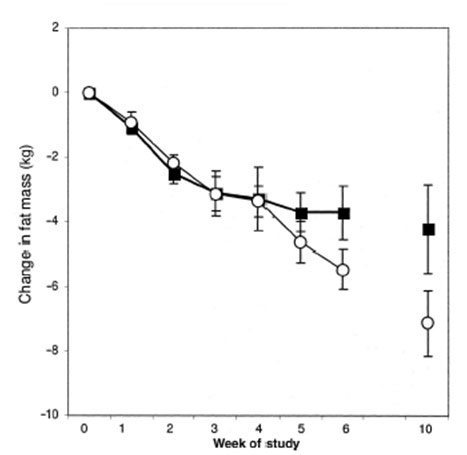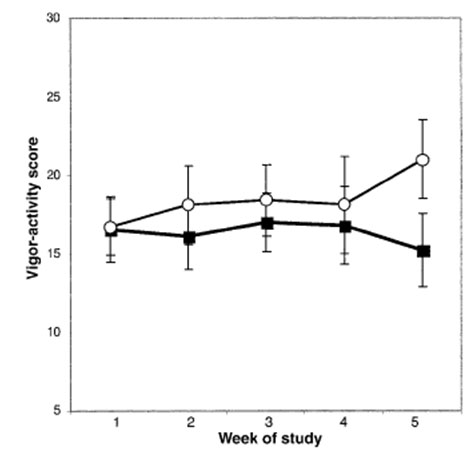A study from Harvard Medical School explains that even though people can lose weight on a ketogenic diet, all lost weight usually rapidly returns.
Ketogenic diets have been recommended for decades for rapid weight loss. The most famous is the Atkins diet. Ketogenic diets are based on high-protein and very low-carbohydrate intake. For the past 40 years such diets have been routinely used in America for weight loss, yet America remains in the midst of a growing epidemic of obesity. While ketogenic diets can induce initial weight loss, all lost weight usually rapidly returns, resulting in more weight (and even more fat) than when the person started the ketogenic diet.
For many years it was thought that such weight regain was due to poor dietary compliance. Now Harvard Medical School in an article in the June 27, 2012, issue of the Journal of the American Medical Association shows the reason for weight regain is more ominous than simple dietary non-compliance. In carefully controlled studies Harvard researchers demonstrated that on a ketogenic diet the levels of the hormone cortisol increase by 18%, and the levels of active thyroid hormone (T3) control metabolism decrease by 12% (1).
The effect of increased cortisol is to cause rapid fat accumulation, as any patient who has ever used prescription cortisol-like drugs knows. It also causes depression of the immune system, loss of memory, and thinning of the skin. These are also hallmarks of the acceleration of the aging process. Furthermore, the lowering of the active form of the thyroid hormone slows down the metabolism, making even seemingly small increases in calorie intake result in increased body fat accumulation. Besides setting you up to regain all the lost weight, the Atkins diet apparently also increases the rate of aging.
However, many people seem willing to continue to try such ketogenic diets in hopes of losing weight quickly. Yet highly controlled studies I published in the world’s most prestigious nutrition journal in world more than six years ago demonstrated that is simply not a true statement (2). In this study either a ketogenic diet (the Atkins diet) or a non-ketogenic diet (the Zone Diet) were compared in obese individuals. For the first six weeks all meals for both groups were prepared in a metabolic kitchen at Arizona State University (in essence treating subjects like lab rats). Both diets contained an equal number of calories.
When it came to weight loss, the subjects following the Zone Diet actually lost slightly more weight than as those on the ketogenic diet during the initial six-week period as shown in Figure 1.

Figure 1. Weight Loss (Zone Diet in open circles, Atkins diet in black squares)
Relative to fat loss on the non-ketogenic Zone Diet, their loss of body fat was again superior to the Atkins diet as shown in Figure 2. Fat loss is far more important than weight loss since all the health benefits from weight loss come from the loss of excess body fat; not from the loss of retained water or loss of muscle mass.

Figure 2. Fat Loss (Zone Diet in open circles, Atkins diet in black squares)
When the subjects continued on the respective diets for another four weeks (but now preparing meals on their own), those subjects on the non-ketogenic Zone Diet continued to lose even more weight and body fat, whereas those on the ketogenic Atkins diet did not. They had reached a plateau. The new research from Harvard Medical explains why.
One of the major problems in following a calorie-restricted diet is lack of energy. In this same study, the subjects on the Zone Diet demonstrated improved daily energy compared to those on the Atkins diet. In another publication using the same subjects, we also demonstrated that those subjects following the Zone Diet had greater performance in endurance testing compared to those following the ketogenic Atkins diet (3).

Figure 3. Energy levels (Zone Diet in open circles, Atkins diet in black squares)
For the past 40 years, ketogenic diets (like the Atkins diet) have failed to treat obesity in America. That is why one relies upon science, not hype, to determine which is the best diet to lose weight (and really body fat), keep it off, and increase energy. Continuing research from Harvard Medical School since 1999 demonstrates that the Zone Diet is the best dietary program to accomplish both goals (1,4-7). And the one thing Harvard will always tell you is that they are never wrong.
References:
- Ebbeling CB, Swain JF, Feldman HA, Wong WA, Hachey DL, Garcia-Logo E, and Ludwig DD. “Effects of dietary composition on energy expenditure during weight loss maintenance.” JAMA 307: 267-2634 (2012).
- Johnston, C.S., Tjonn, S., Swan, P.D., White A., Hutchins H., and Sears B. “Ketogenic low-carbohydrate diets have no metabolic advantage over nonketogenic low-carbohydrate diets.” Am J Clin Nutr 83: 1055-1061 (2006).
- White AM, Johnston CS, Swan PD, Tjonn SL, and Sears B. “Blood ketones are directly related to fatigue and perceived effort during exercise in overweight adults adhering to low-carbohydrate diets for weight loss: A pilot study.” J Am Diet Assoc 107: 1792-1796 (2007).
- Ludwig, DS, Majzoub AJ, Al-Zahrani A, Dallal GE, Blanco I, and Roberts SB. “High glycemic index foods, overeating, and obesity.” Pediatrics 103: e26 (1999).
- Agus MSD, Swain JF, Larson CL, Eckert EA, and Ludwig DS. “Dietary composition and physiologic adaptations to energy restriction.” Am J Clin Nutr 71:901–907 (2000).
- Pereira MA, Swain J, Goldfine AB, Rifai N, and Ludwig DS. “Effect of low-glycemic diet on resting energy expenditure and heart disease risk factors during weight loss.” JAMA. 292: 2482-2490 (2004).
- Ebbeling CB, Leidig MM, Feldman HA, Lovesky MM, and Ludwig DS. “Effects of a low–glycemic load vs. low-fat diet in obese young adults”. JAMA 297: 2092-2102 (2007).






Let Us Know What You Thought about this Post.
Put your Comment Below.